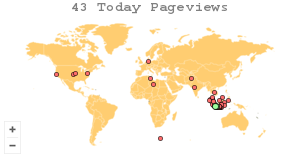PANDANGAN ALQURAN DAN HADIS TERHADAP SIFAT KIKIR (PELIT)
DOI:
https://doi.org/10.47498/bashair.v2i1.1171Keywords:
View,, alQuran,, Hadith,, Miserly,, Stingy.Abstract
This article aims to discuss the nature of miserliness in the view of the Koran and Hadith. This research uses descriptive analytical method with a qualitative approach within the scope of field research (Library Research). Allah denounces miserliness and asserts that his wealth surpasses all his creatures. Miserly among su'u al-adab (Bad Adab) to Allah which must be avoided because it violates Allah's commands and the breadth of His sustenance to humans. The Qur'an denounces and threatens miserly people, including: 1) Making his way into trouble easy, 2) His wealth will be hung around his neck on the Day of Resurrection, 3) People who are lulled by the tricks of Satan, 4) Characteristics of a hypocrite, 5) Characteristics of a wicked person. The hadith also discusses miserly behavior including: 1) The Prophet's prayer to be far from being stingy. 2) The prayer of destruction from the angel of god against the treasure of the miser that is stored. 3) Miserliness is the cause of the destruction of the former. 4) The miser is far from heaven and close to hell. 5) Miserly people are shunned by fellow humans. 6) Miserliness is a sign of imperfect faith. 7) A miser will not enter heaven. 8. Miserliness is the worst of traits. The Qur'an and hadith provide guidance so that humans are farthest from being stingy by realizing that wealth is an ornament of the world that Allah has entrusted to humans to spend properly because this treasure will be sucked away. So let people prepare for their suction in the hereafter.
References
Alquran Dan Terjemahannya (1418 H). Madinah al-Munawwarah: Majma’ al-Malik Fahd li at-Tiba’ah al-Mushaf as-Syarif.
‘Iyadh, Q. (1998): Ikmal al-Mu’lim bi fawaid Muslim. Mansurah: Dar el-wafa.
Al-Abadi, S. H. A. (2005) ‘Aun al-Ma’bud Bairut: Dar ibnu Hazam.
Al-Asfahani, R. (t.t) al-Mufradat fi Gharib al-Quran. Bairut: Dar el-Ma’rifah
Al-Asqalani, H. (2005) Fathul Bari. Riyadh: Dar el-Tayyibah.
Al-Bukhari (t.t) Sahih al-bukhari, Damaskus: Dar Ibnu kasir.
Al-Busti, S. H. M. K., (1933) Ma’alim as-Sunan syarah sunan abu daud. Aleppo: Maktabah ‘Ilmiah Muhammad Raghib at-Tabbakh. Vol. 2.
Al-Fansury, A. A. J., (2011). Turjumanu al-Mustafid. Alih Aksara: Ismail Thaib. Yogyakarta: Toko Kitab Beirut.
Al-Jauziah, Q. (t.t) al-Fawaid. Mekkah: Dar el- ‘Alim al-fawaid.
Al-Mubarakafuri (t.t) Tufhat al-Ahwazi. Damaskus: Dar el-Fikri. Vol. 6
An-Nasa’I (2015) Sunan an-Nasa’I, Riyadh: Dar el-Hadarah.
An-Nawawi (t.t) al-Minhaj Syarah Sahih Muslim. Mekkah dan Urdun: Bait Afkar ad-Dauliah.
At-Tarmizi (1999) al-Jami’ al-Kabir, Riyadh: Bait Afkar ed-Daulah.
Az-Zuhaili, W. (1994). at-Tafsir al-Wajiz ‘ala Hamisy al-Qur’an al-Karim Ma’a Asbab an-Nuzul wa Qawa’id at-Tartil. Damaskus: Dar el-Fikri.
Az-Zuhaili, W. (2001). at-Tafsir al-Wasith. Damaskus: Dar el-Fikri.
Daud, A (2009), Sunan Abu Daud, Damaskus: Dar er-Risalah al-ilmiah.
Hambal, A. (1995) Musnad Ahmad. Kairo: Dar el-hadis.
Kasir, I. (2002). Tafsir alQuran al-Karim. Kairo: Dar el-Hadis.
Kementrian Agama RI. 2009. Tafsir Tematik: Pembangunan Ekonomi Umat. Jakarta: Lajnah Pentashih Mushaf alQur’an.
Mujma’ al-Lughah al-Arabiyah (2004), al-Mu’jam al-Wasit. Mesir: Maktabah as-Syuruq ad-Dauliyah.
Muslim (2006), Sahih Muslim, Riyadh: Dar el-tayibah.
Sina, P. G., & Noya, A. (2012). Pengaruh kecerdasan spiritual terhadap pengelolaan keuangan pribadi. Jurnal Manajemen Maranatha, 11(2).
Sugiyono. (2018). Metode Penelitian Pendidikan Pendekatan Kuantitatif, Kualitatif, dan R&D. Bandung: Alfabeta.
Syamy, S. A. (1993) al-Muhazzab Min Ihya Ulum ad-Din. Damaskus: Dar el-Qalam dan Bairut: Dar asy- Syamiah.
Downloads
Published
Issue
Section
License
Authors who publish articles in Basha'ir: Jurnal Studi Al-Qur'an & Tafsir agree to the following conditions:
- The author retains copyright and grants the Basha'ir Journal the right from the first publication with the work simultaneously licensed under a Creative Commons Attribution-ShareAlike 4.0 International (CC BY-SA 4.0) license that allows others to make changes, adjust and build on the work with recognition of the author's work and initial publication in the Journal.
- Authors are allowed to copy and redistribute published versions of works in journals (for example, posting them to institutional repositories or publishing them in a book), with recognition of their initial publication in Basha'ir: Jurnal Studi Al-Qur'an & Tafsir.
- Authors are allowed and encouraged to post their work online (for example, in institutional repositories or on their websites) before and during the submission process, as it can lead to productive exchanges, and increase citations of published works






